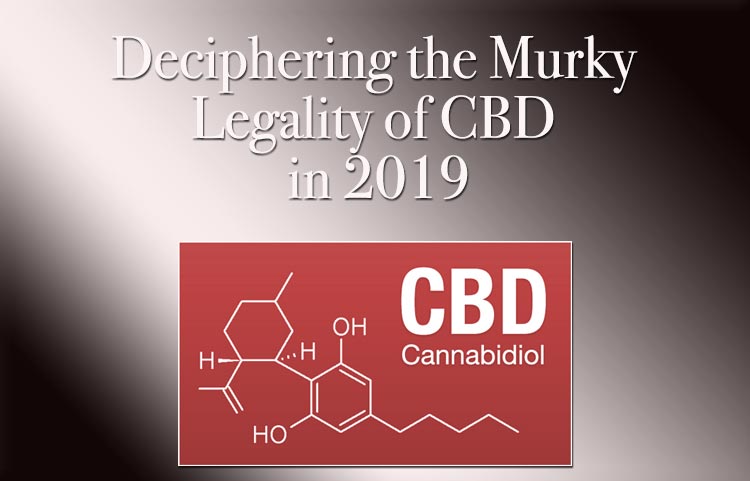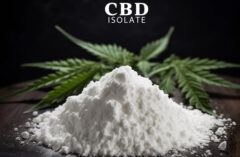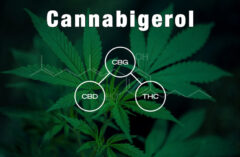Table of Contents
Last Updated on May 29, 2019 by
“CBD is legal in all 50 states.”
This sentence can be found on nearly every CBD company’s website, and it makes consumers feel about as warm and toasty as CBD itself.
At least until they end up like this guy who is being brought before a jury on felony drug charges for possession of CBD oil in Ohio, or these shop owners who had over $50,000 worth of CBD products confiscated from their stores in Texas by local law enforcement.
So what’s the deal? Is CBD legal or not?
CBD exists in a murky area of legality at the moment, leaving consumers and law enforcement scratching their heads. In this post, we’re going to clear the waters for you.

The Farm Bill is Only The Beginning
Some in the CBD industry talk about the 2018 Farm Bill like it’s the end of their legal woes, but in fact, it’s only the beginning of a long road.
As a quick introduction for those unaware, Congress passes a Farm Bill (officially titled the Agricultural Improvement Act) every few years to renew agricultural subsidies that support farmers. In 2018, one provision in the bill legalized hemp and its derivatives as agricultural products. Here’s what that means:
- Hemp and derivative products like CBD were explicitly removed from the Controlled Substances Act
- Hemp is to be regulated by the Department of Agriculture and FDA, not the DEA and Justice Department
- Interstate commerce of help and hemp products is legal
- Research on hemp for pharmaceutical, health, wellness, and nutritional purposes will not be restricted
Sounds good, right? It’s true that the Farm Bill was a HUGE step for CBD. But simply legalizing something at a federal level doesn’t make it fair game. Alcohol is also legal in all 50 states, but alcohol regulations are extremely extensive and differ from state to state.
While CBD is not an intoxicant like alcohol, it’s still something that you put into your body, so it will need to be studied and regulated thoroughly. As of now, this regulatory step is in its infancy.
This means that the legal status of CBD will likely change a lot in the coming months and years (don’t worry, we’ll keep you updated!), but as of now, here are the most important factors to understand regarding the legality of CBD.
State and Federal Laws about Hemp and CBD
The biggest misconception about hemp’s legalization is that it is now legal nationwide. While it’s true that hemp is now legal at the federal level, the Farm Bill stipulates that individual states are allowed to have their own say.
That means your state could effectively decide to make hemp illegal all over again, and the federal government wouldn’t come to the rescue.
Now, it is unlikely that any state will make hemp illegal outright, but it is probable that certain states will outlaw the sale of hemp products that contain even trace amounts of THC, or food made with active cannabinoids. In fact, states have already started making these very distinctions.
So yes, CBD may be legal federally, but to understand if it’s legal for you, you need to read up on your state’s take on hemp, the Farm Bill, and CBD.
CBD and Cannabis Laws
Hemp and marijuana are both cannabis plants, and CBD can be extracted from both of them. While they may look similar, they have very different legal profiles and effects on your body. We’ll break it down for you.
Hemp:Contains almost no THC, doesn’t get you high
Marijuana:Contains a lot of THC, can get you veryhigh
CBD made from hemp:Is federally legal, but your state may have restrictive laws
CBD made from marijuana: Is federally Illegal, but may be legal in your state
Edibles and Dietary Supplements
The most pressing issue for CBD is how regulators at the FDA will allow it to be consumed. As it stands now, the FDA prohibits the use of CBD in dietary supplements, food, and beverages. That’s because with the FDA’s approval of the CBD-based pharmaceutical Epidiolex last year, it considers CBD itself to be a drug.
This doesn’t look good for CBD, but it’s not as bad as it seems. Even before the Farm Bill passed, the FDA was pretty lenient on CBD and only issued warnings to companies that made false or unsubstantiated medical claims.
And now, the FDA has recognized public demand for CBD and, according to an official statement, will “consider whether there are circumstances in which certain cannabis-derived compounds might be permitted in a food or dietary supplement.”
As a consumer, this won’t affect you directly, as the FDA would crack down on CBD producers, not users. Plus, non-food/drink CBD products that aren’t labeled “dietary supplements” are not prohibited by the FDA.
But your state can interpret the FDA’s language in any way it wants when regulating your ability to possess CBD, so again, keep up to date with your state’s regulations.
How to Ensure Your CBD is Legal
The road to a clear answer on CBD’s legal status is a long way off. According to former FDA Chief Scott Gottlieb it could take years. But, the sentiment toward CBD on a national and state level is positive and only improving as time passes.
For now, follow these simple steps to enjoy your CBD and stay on the right side of the law:
- Understand your state’s regulations regarding CBD:Just because you bought it at a local shop doesn’t mean you can’t be prosecuted for possession.
- Buy hemp-sourced CBD: CBD made from hemp is legal in most states. Find a list of trusted hemp-derived CBD oilshere.
- Exercise caution when traveling with CBD: Crossing state lines with CBD will up the risk factor. If you have to travel, do your research, and consider buying your CBD when you reach your destination.









